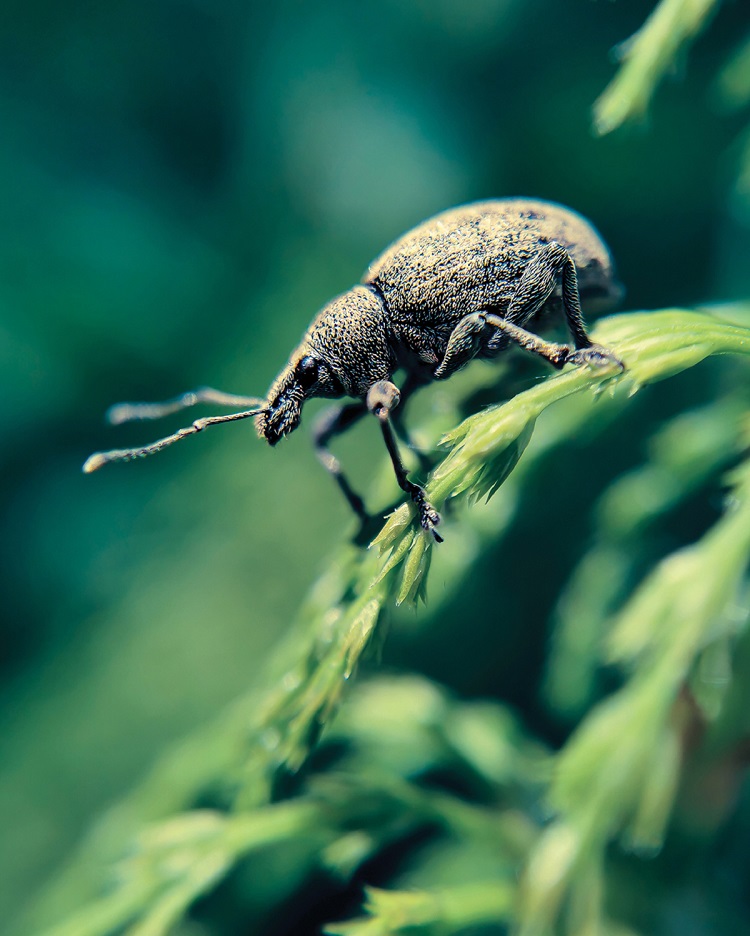Black vine weevils are a serious problem for growers trying to produce fruit, vegetables and flowers: they feed on virtually any plants they can find, they don't have to mate to produce large numbers of eggs, and they are notoriously difficult to get rid of. The caterpillars eat the roots of plants and can live in the soil where they are very well hidden and protected. By the time they transform into adult weevils, the damage is often done.
Insecticides targeted to the caterpillars can be applied to seedlings before planting, or sprayed on the crop against the adults. However, only a small number of insecticides are allowed, and all growers want to avoid using them on food  crops because of the possibilities of leaving chemical residues on their produce, making it potentially unsafe for consumers and unmarketable.
crops because of the possibilities of leaving chemical residues on their produce, making it potentially unsafe for consumers and unmarketable.
NRI scientists have been working with colleagues at Harper Adams University and ADAS, an agricultural and environmental consultancy in the UK, to identify the naturally occurring chemicals in plants which attract the vine weevils. The vine weevils ‘smell’ the chemicals with their antennae, and NRI scientists used a technique pioneered at NRI to record electrical responses from the antennae when it is stimulated by an attractive chemical.
The scientists identified a blend of chemicals which was tested at Harper Adams in the laboratory and shown to attract vine weevils into prototype traps they had developed. This was the first time it had been possible to lure vine weevils into traps with a blend of chemicals, and opens up the possibility of trapping vine weevils to prevent them from eating crops and laying eggs to produce more vine weevils.
The trap is being tested by growers, and the blend of chemicals is being further refined in laboratory tests. The aim is to develop a tool for gardeners and growers that stops vine weevils destroying their crops that doesn’t use insecticides and is safe to use for both users and consumers.
To find out more about:

